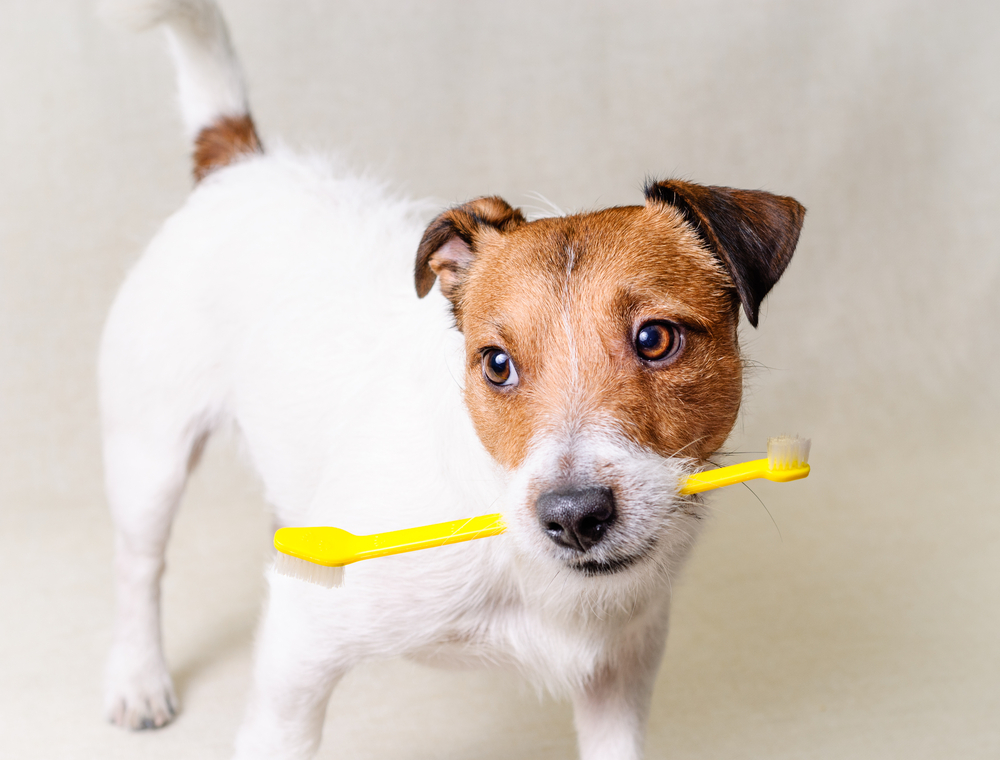Preventing Periodontal Disease in Pets
June 30, 2020

Periodontal disease is the most common oral disease affecting our animals, affecting over 87% of dogs and 70% of cats over three years of age. The disease is characterized by inflammation and infection of the soft tissues of the gums that cause a range of unpleasant symptoms for your pet. As the disease progresses, it causes weakening or deterioration of the supporting structures of the teeth, putting them at risk of falling out.
In addition to this, periodontal disease has also been shown to be a contributing factor in the development of a range of general health problems which could have an adverse effect on your pet’s wellbeing and quality of life. These health conditions include diabetes, heart problems, liver disease, and even cancer. Fortunately, periodontal disease can be prevented.
Preventing periodontal disease with at-home dental care
Taking care of your pet’s teeth at home is one of the best ways to keep periodontal disease at bay. This involves several elements. Firstly, you should brush your pet’s teeth as often as possible. It can take some practice to get the hang of it, but most animals tolerate brushing very well. Use a small-headed brush and be sure to only use veterinary-approved toothpaste as human varieties contain artificial sweeteners that are toxic to animals.
As well as brushing your pet’s teeth carefully, daily if possible, you should consider giving them dental sticks. These treats are very tasty but contain ingredients that are designed to support their oral health. Many are also abrasive, which have a cleaning action as they rub against your pet’s teeth while they chew. Chewing should be encouraged too, but only chew toys. Chewing causes your pet to produce saliva which naturally counteracts the acids caused by eating and washes away bacteria before it can cause plaque.
The importance of routine dental cleanings with your veterinarian
When was the last time you visited your dentist for a routine dental clean? You may be surprised to learn that your pet will benefit from exactly the same service as your veterinarian. Most vets recommend that all animals attend a routine professional dental clean which is usually carried out at the same time as their annual check-up. Cleaning is nearly always done while your pet is under the effects of a general anesthetic. There are several reasons for this.
General anesthetic means that your pet will be perfectly still. This ensures their safety, as some of the instruments used to clean their teeth can be quite sharp.
Your pet being still also ensures the safety of your vet who needs to put their fingers near to your pet’s mouth to check their teeth and perform the cleaning.
The process won’t be frightening for your pet, who will be asleep the entire time.
Professional dental cleaning by your veterinarian will focus on removing all traces of tartar – hardened plaque that appears as brown/yellow deposits that can only be removed using professional tools. Annual cleans have been proven to help keep periodontal disease at bay.
Signs of periodontal disease in pets
It is always better to prevent a problem rather than treat one and this applies to dental issues such as periodontal disease too. Nevertheless, it is still important that owners recognize the signs of periodontal disease so that they can get their pet the help that they need promptly and prevent any further damage to their teeth and oral health if they are affected.
Periodontal disease is progressive, and so too are the symptoms associated with it, which get steadily worse the longer your pet goes without treatment. Some of the signs of periodontal disease in pets that you should be aware of include:
Red, swollen or bleeding gums
Excessive drooling
Signs of blood on chew toys or in food/water dishes
Difficulty eating
Loss of appetite
Irritability
Exceptionally bad breath
Loose teeth
If you are concerned that your pet may be affected by periodontal disease, or if you would like to schedule an appointment for a routine professional clean, our dedicated and experienced veterinary team would be happy to help. Please call us to schedule your visit.


